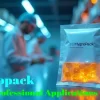There are several fundamental uses of the best guiding DevSecOps principles to live by in 2023. The best DevSecOps practices enable engineering, security, and operations teams to work collaboratively on projects, adopt secure-coding strategies, and fortify the software development life cycle (SDLC). Adopting the best practices, software companies take a shift left – making everyone involved accountable of security. This is known to help with vulnerability defense, CI/CD automation, threat response, and incident management. As a developer yourself, you should know how to embrace these key, guiding, and core development practices. This way, you can boost your software business, transform your workforce, and embrace the latest technologies. Read on to learn about the best guiding DevSecOps principles to live by in 2023.
Promote A Successful DevSecOps Culture
Before the shift to DevSecOps is introduced, you need to promote a proactive, collaborative, and security-driven culture. A successful culture extends across all your personnel, processes, users, and tech infrastructure. After all, each of these elements play a mission-critical role in making your DevSecOps adoption successful. Specifically, you need to make sure your development, security, operations, and management teams are all excited about the process. Regarding processes, it often helps to prepare detailed, specific, and standardized workflow documentation. Indeed, promote a successful DevSecOps culture to prepare for this monumental shift left.
Embrace Powerful DevSecOps Tools
The best DevSecOps strategies, practices, processes, and principles encourage you to embrace the latest tools. JFrog DevSecOps help you conduct static (SAST), dynamic (DAST), and interactive (IAST) application security testing. These automated QA procedures are mission critical for identify vulnerabilities, bugs, defects, or errors within your proprietary developed code. This way, you can diagnose, address, and remediate them early in your DevOps lifecycle. Using these solutions, you can also conduct software composition analyses (SCA). This functionality inspects, manages, and monitors license compliance in your system’s open source components. Certainly, core, guiding DevSecOps principles encourage you to embrace the latest development tools, programming resources, and supporting technologies.
Adopt Serverless Architecture
Many guiding DevSecOps principles also focus on serverless architecture. Think of serverless architecture as a proactive, secure framework for building, managing, and hosting in the cloud. Unlike other cloud-based models, the serverless approach allows you to access and consume valuable resources on-demand. This way, you can reduce the need for serverless management, improve scalability, accelerate deployments, and optimize latency. Plus, you can reduce costs, allocate resources for user experience (UX), and promote “greener” hosting operations. If you are struggling to manage the underlying infrastructure for modular software, this is a great model to embrace. Surely, consider adopting serverless architecture with core, guiding DevSecOps principles for success.
Automate Security And Vulnerability Scanning
Automating security and vulnerability scanning operations is another key DevSecOps principle to live by in 2023. These artificial intelligence (AI) powered security scans enable teams to work productively, proactively, and efficiently. They are constantly scanning – so you can immediately pause when a security issue or threat is identified. This way, you can reduce the need to rewrite code and revise system functionality. Ultimately, it is a key ingredient for releasing and deploying high-quality software products. Plus, these tactics strengthen security posture, fortify your software supply chain, and extend testing coverage. Absolutely, you’ll be encouraged to automate security and vulnerability scanning when following the best DevSecOps adoption practices.
Reduce Development Team Workloads
To successfully adopt and succeed with DevSecOps, companies need to reduce the workload and pressure of application development, security, and operations teams. You don’t want your DevSecOps processes to overwhelm, confuse, or stress-out your application engineering team. So, take forward-thinking steps to reduce the burden and ease the transition on your new collaborative DevSecOps team. The most effective way to do this is with a smart combination of powerful software tools, advanced processes, and step-by-step documentation. Definitely, reducing development team workloads is an important guiding practice with DevSecOps.
There are several uses of the best guiding DevSecOps practices and principles to live by in 2023. Start by establishing a structured culture across your people, processes, and tech. Next, embrace the latest DevSecOps tools, resources, and supporting technologies. This way, you can strengthen your security posture, improve cross-departmental collaboration, and fortify your software delivery supply chain. You should also adopt a serverless architecture for security, scalability, and productivity. Additionally, it helps to automate security and vulnerability scanning operations. Plus, you can reduce the workload, pressure, and reliance on application engineering teams. Follow the points highlighted above to learn about the best guiding DevSecOps principles to live by in 2023.










